UNDP YEMEN: THE WHOLE VILLAGE BENEFITS: COMMUNITY CONTRACTING IN YEMEN
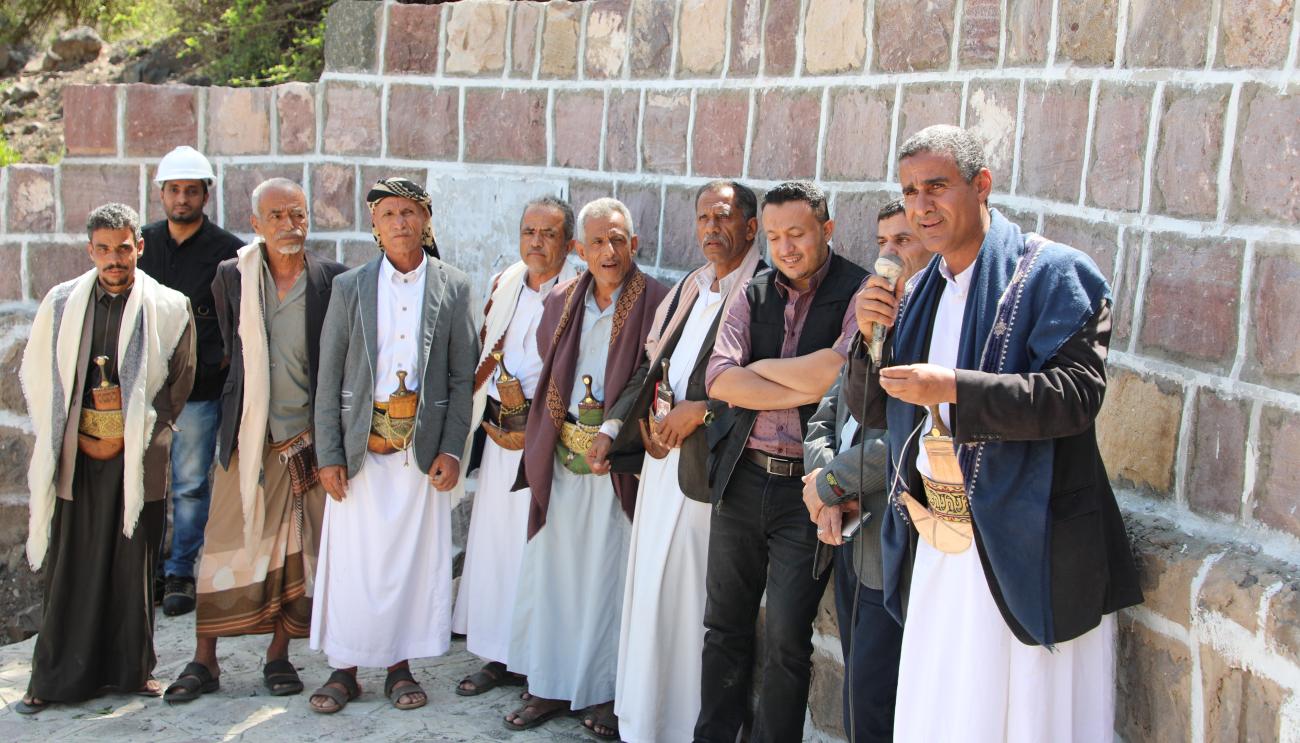
An effective approach to local project contracting plays a part in combating conflict and the effects of climate change.
Prolonged conflict in Yemen has had a profound effect on the country and its people. Political, economic, and social consequences have affected the country´s ability to provide basic services, with Yemenis experiencing a chronic lack of employment opportunities, while many that are employed see their wages go unpaid.
These issues are compounded by the impact of climate change, high inflation, the effects of the COVID-19 pandemic and global supply-chain issues, with Yemenis living increasingly vulnerable lives as they are left to fend for themselves in one of the most food-insecure countries in the world. In Yemen, around 90% of food is imported and some 17.4 million people face acute food insecurity.
Conflict – and the numerous other challenges Yemenis face – negatively affects the social fabric of communities. Solutions to build trust, bring communities together, and work towards a more peaceful future are required.
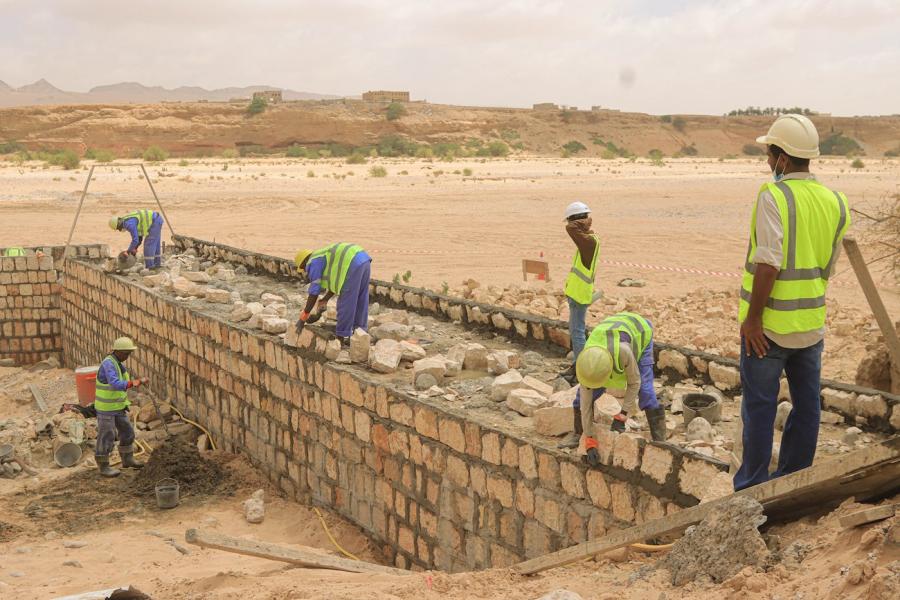
COMMUNITY CONTRACTING FOSTERS RESILIENCE
In a bid to improve lives – and livelihoods – for the long term, UNDP’s Emergency Social Protection Enhancement and COVID-19 Response Project (ESPECRP), with national partner the Public Works Project (PWP), is applying community contracting mechanisms to construction projects, from water harvesting to agricultural land reclamation and road paving. This is an approach that helps communities better support themselves through immediate crisis and for the long term, improving food production and increasing access to critical services. Already these projects have benefited tens of thousands of Yemenis in disadvantaged communities.
Because of the way that community contracting works – by hiring and paying local community members to improve their own infrastructure and using local resources as much as possible – these projects also help foster a greater sense of community as neighbors work together for the good of the whole village, resulting in a sense of ownership and belonging.
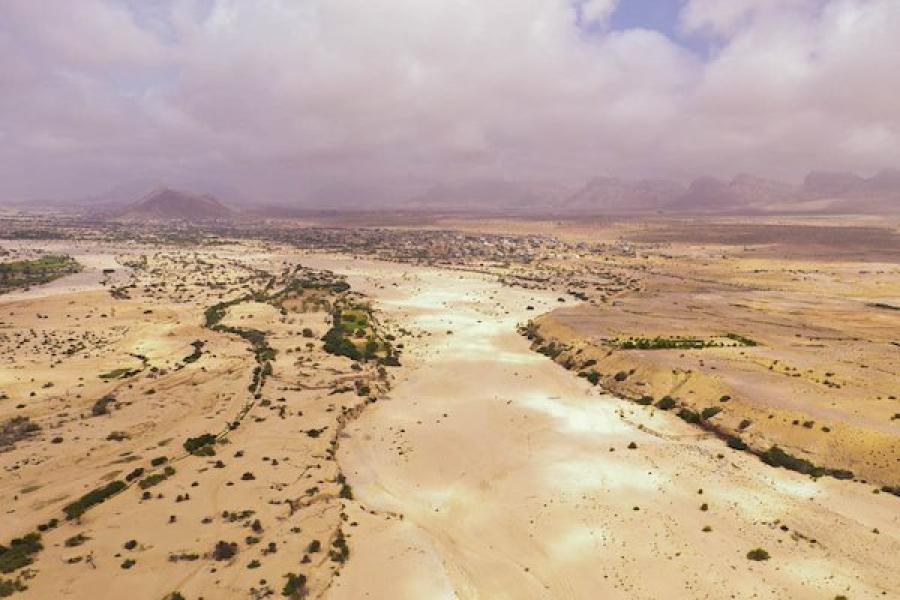
FIGHTING THE EFFECTS OF CLIMATE CHANGE
Climate change is increasingly adding to the difficulties that Yemenis face, particularly in rural, agricultural areas. The country is seeing not only more extreme, extended dry periods but also flooding that washes away agricultural infrastructure as well as fertile soil. This makes for further food insecurity, with climate events happening with greater severity and becoming increasingly unpredictable.
For already impoverished communities, the effects of climate change on food security are dire. Many of the projects that work best in the community contracting format are directly related to agriculture and combating the effects of climate change. PWP advocates that ideal projects are small community assets in rural areas that require simple techniques, high labour intensity and the use of materials that are available locally. While road rehabilitation is one example, the protection of agricultural land through the building of gabions and irrigation canals that help mitigate desertification are other key projects.
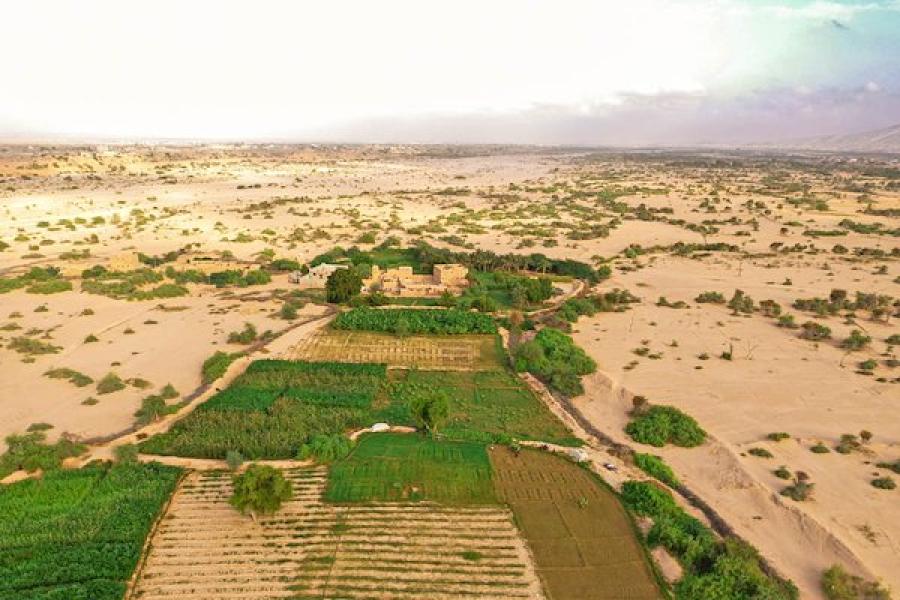
EMPOWERING LOCAL COMMUNITY MEMBERS
Because of the focus on keeping projects as local as possible, community members benefit from access to improved services and new job opportunities that provide the community with fast access to cash as well as skills to better their longer-term employment opportunities. An irrigation rehabilitation project in Shabwa is one such example.
“The Ba-Yahya irrigation channel rehabilitation project offered me a job, which has improved my living conditions and livelihood through both the work and the work experience I gained,” says Muhammad Saleh, a resident of Mayfa’a, Shabwa. “Before, I was unemployed, but I was chosen by the community committee to work on this project through a wage employment scheme, which has improved my situation and that of many labourers from my community.”
Muhammad, like many other workers who participated in this project, received training in how to mix concrete, how to properly lay rocks and how to plaster walls before starting work onsite. “We had a chance to learn new skills from more experienced engineers,” he explains.
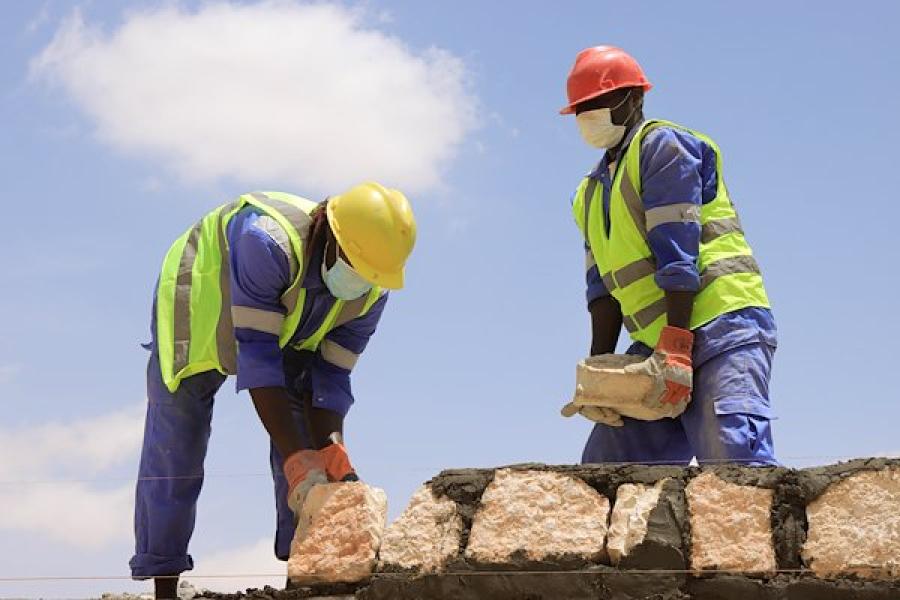
The percentage of local community members working on such development projects increased by 60% after the community contracting approach was adopted.
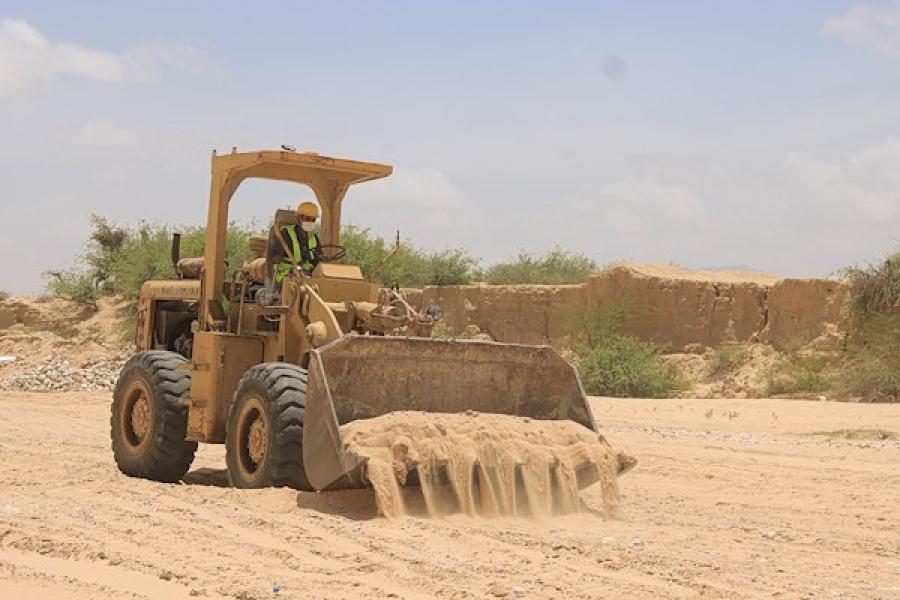
“Community contracting is a real and successful investment in human capital development, accomplished through equipping community members with the skills needed to generate a sustainable income,” says Ibtihal Fuad, an Engineer, and the Investment Planner at PWP.
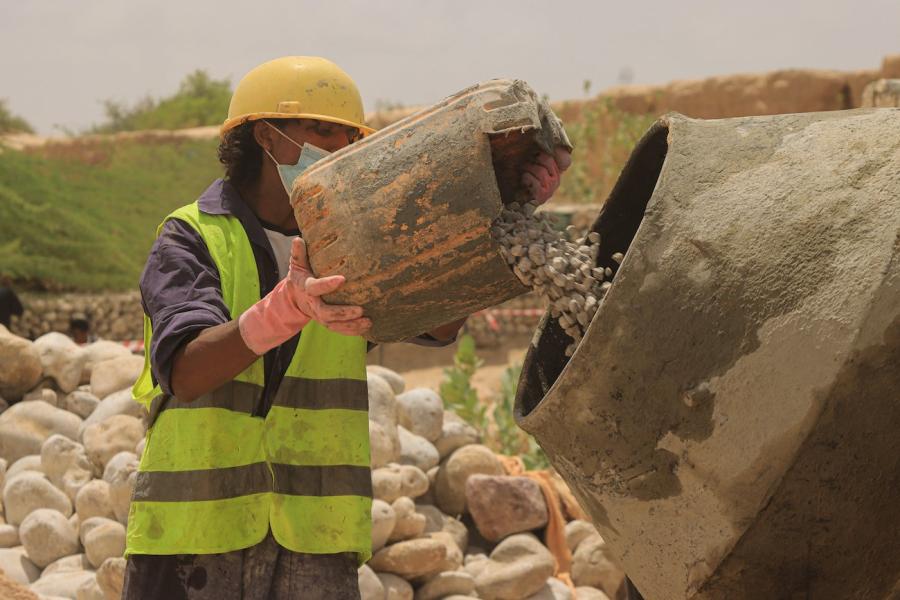
AN INCLUSIVE APPROACH THAT OFFERS OPPORTUNITIES FOR WOMEN
When these projects happen, the entire community participates – including women. Women are also offered the opportunity to learn a profession and deliver skills that are needed in the local labour market. In fact, community contracting has increased women’s employability by 30% when compared to a private contracting approach.
Barakah Khamis, a resident of the Ba-Yahia region in the governorate of Shabwah, was a key contributor in rehabilitating rainwater irrigation channels in her area. She received training on the community contracting provided by PWP and applied it to become a contractor herself in the project.
"The training provided me with the set of skills needed to be a community contractor to clear shrubs and waste from the irrigation channels," she said. "I even hired 30 other women from the area and worked together to get the job done," she adds.
According to Shafiqa Al-Rajami, the Gender Specialist at PWP, “Community contracting provides a greater opportunity to employ women, empower them economically and promote their role in society. This mechanism provides equitable conditions for women to compete with men in bidding to win project tenders.”
Barakah expressed her appreciation for the opportunity and said, “In my capacity as a decisionmaker, I have become well respected by my family and community who appreciate what I have achieved.” Barakah emphasized the impact this project has had on the lives of all the women involved as well as her community; they have been able to improve their livelihoods, highlighting the important role women can play in their community.
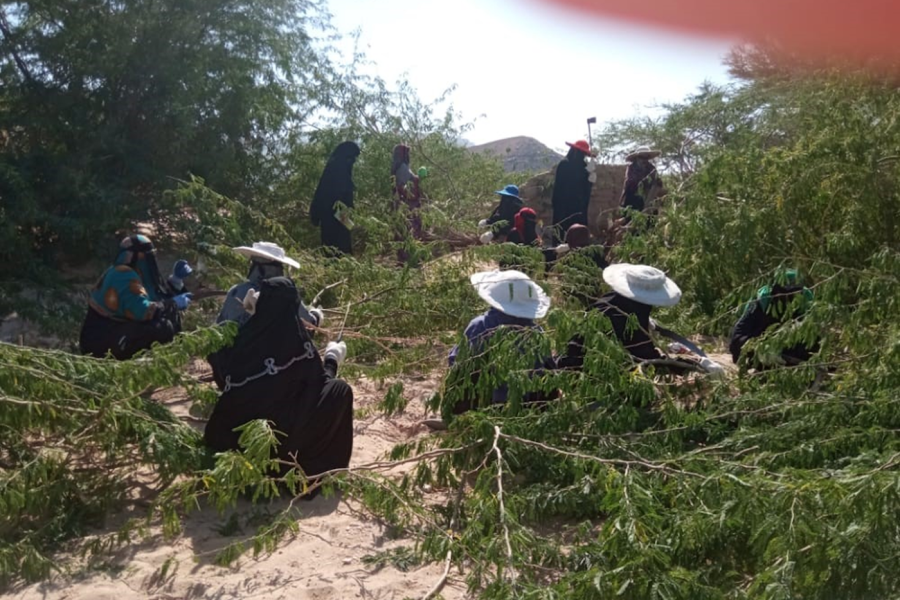
COMMUNITY INVOLVEMENT FROM PLANNING TO IMPLEMENTATION
The approach involves dividing work into several stages, explains Mohammed Al-Shawafi, the Community Contracting Coordinator at PWP, starting with choosing the project name and then assigning an engineer and a social researcher to inspect the site, identifying the scope of priorities and needs.
“After that, a beneficiaries committee of both men and women is elected by the local community and its members are trained on the mechanisms and requirements needed to implement the project: the committee takes responsibility for all phases of the project,” he adds.
As well as delivering results that have directly considered the needs of the community, this approach also encourages greater communication within communities. Decisions must be reached, and compromises made. In the process, community dialogue is strengthened, and a sense of trust is forged.
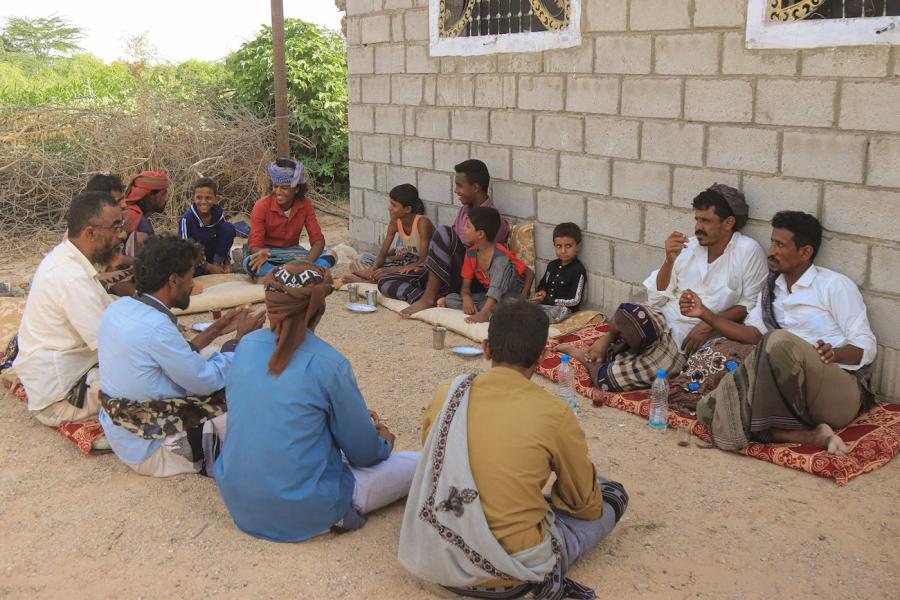
A PAVED ROAD BECOMES A VALUABLE COMMUNITY ASSET
These community-based projects offer some of the best solutions against deteriorating conditions across vital areas of infrastructure, such as the poor road conditions seen across much of the country. One such project targeted a dangerous stretch of road in Al-Sarrah, a sub-district of Al-Odein, Ibb Governorate.
“This treacherous road was a big risk during rainy seasons – there was a real risk of death,” says Qasim Al-Humaidi, a resident of Al-Sarrah. Extreme weather not only damaged the road and made it dangerous for travelers but also crippled agricultural production.
“Torrential rains used to cause soil erosion and floods, sweeping away agricultural terraces,” explains Majed Al-Ohami, a PWP consultant.
In Al-Sarrah, the paved road has brought new life and business to the area. “This road serves more than 100,000 people, giving them access to many services in the city. It not only links sub-districts and villages but also wider districts and governorates – all of which are densely populated areas,” explains Sadiq Saif, head of the beneficiaries committee.
“The project also plays a significant role in economic recovery, with investment in the local area increasing too.” Saif explains that new health facilities, restaurants and supermarkets have all opened as a result of the successful road project. He adds that since the community provided the 20,000 rocks needed to pave the road, all of which were sourced locally, there was no need to bring rocks from further away, cutting costs and transport emissions.
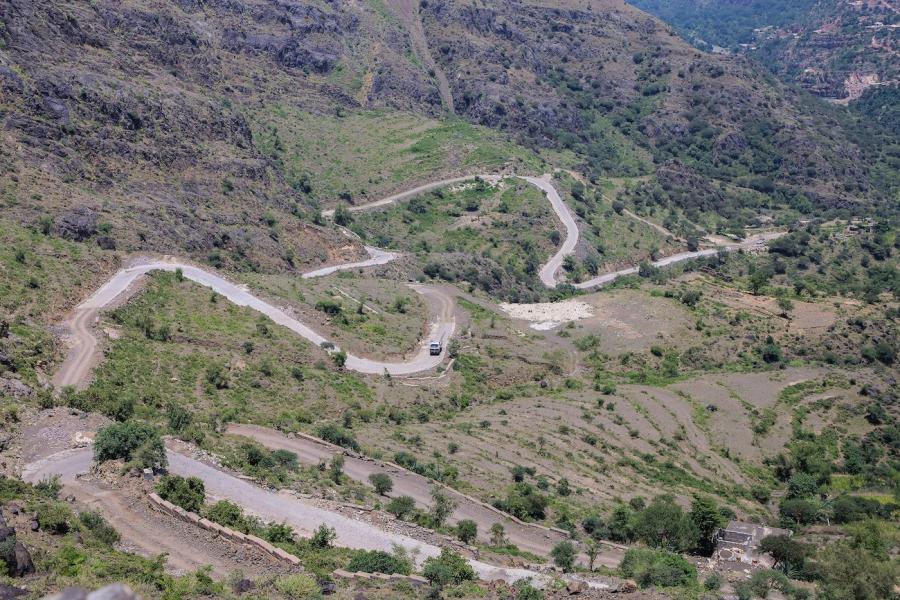
A LONG-TERM FOCUS BEYOND DAILY STRUGGLES
ESPECRP and PWP are helping Yemen’s crisis-affected people regain sustainable livelihoods. These projects have enabled Yemenis to prioritise broader recovery efforts and development planning – giving them a longer-term focus, beyond the day-to-day struggles of an impoverished nation.
According to Al-Shawafi: “Community contracting contributes to strengthening Yemen’s core infrastructure across sectors, across communities and for the long run.”
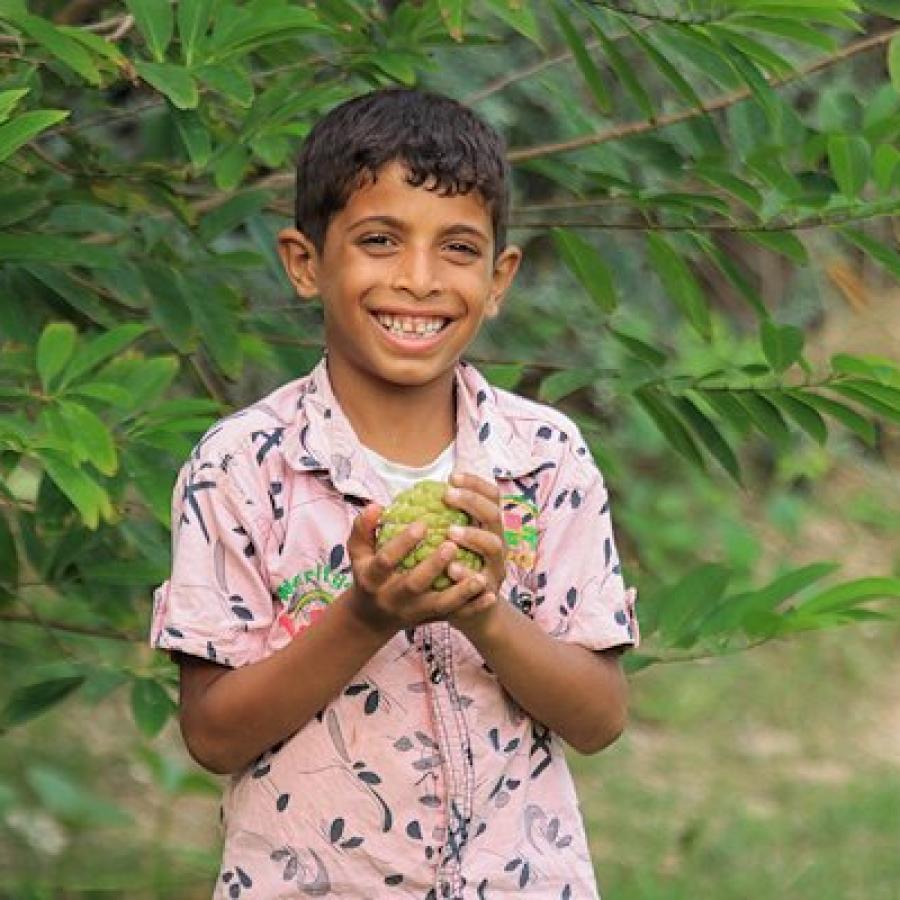
***
The Emergency Social Protection Enhancement and COVID-19 Response Project (ESPECRP) supports nutrition-sensitive cash transfers and temporary employment, while also improving access to sustainable livelihoods, key services, and economic opportunities for geographically focused areas affected by hunger, malnutrition, and climate related shocks. The project is in line with the World Bank’s integrated approach to improve food security resilience and sustainable livelihoods for Yemenis.
Funded and supported by the World Bank’s IDA, the US$ 232.9 million ESPECRP is implemented by the Social Fund for Development (SFD), the Public Works Project (PWP), and the Small and Micro Enterprise Promotion Service (SMEPS) in partnership with UNDP Yemen.



